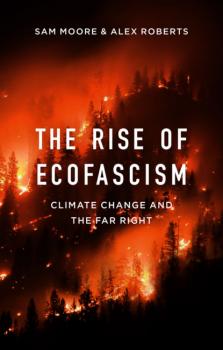John Wiley & Sons Limited
Все книги издательства John Wiley & Sons LimitedThe Invention of the 'Underclass'
At century’s close, American social scientists, policy analysts, philanthropists and politicians became obsessed with a fearsome and mysterious new group said to be ravaging the ghetto: the urban “underclass.” Soon the scarecrow category and its demonic imagery were exported to the United Kingdom and continental Europe and agitated the international study of exclusion in the postindustrial metropolis. In this punchy book, Loïc Wacquant retraces the invention and metamorphoses of this racialized folk devil, from the structural conception of Swedish economist Gunnar Myrdal to the behavioral notion of Washington think-tank experts to the neo-ecological formulation of sociologist William Julius Wilson. He uncovers the springs of the sudden irruption, accelerated circulation, and abrupt evaporation of the “underclass” from public debate, and reflects on the implications for the social epistemology of urban marginality. What accounts for the “lemming effect” that drew a generation of scholars of race and poverty over a scientific cliff? What are the conditions for the formation and bursting of “conceptual speculative bubbles”? What is the role of think tanks, journalism, and politics in imposing “turnkey problematics” upon social researchers? What are the special quandaries posed by the naming of dispossessed and dishonored populations in scientific discourse and how can we reformulate the explosive question of “race” to avoid these troubles? Answering these questions constitutes an exacting exercise in epistemic reflexivity in the tradition of Bachelard, Canguilhem and Bourdieu, and it issues in a clarion call for social scientists to defend their intellectual autonomy against the encroachments of outside powers, be they state officials, the media, think tanks, or philanthropic organizations. Compact, meticulous and forcefully argued, this study in the politics of social science knowledge will be of great interest to students and scholars in sociology, anthropology, urban studies, ethnic studies, geography, intellectual history, the philosophy of science and public policy.
Data Mining and Machine Learning Applications
DATA MINING AND MACHINE LEARNING APPLICATIONS The book elaborates in detail on the current needs of data mining and machine learning and promotes mutual understanding among research in different disciplines, thus facilitating research development and collaboration. Data, the latest currency of today’s world, is the new gold. In this new form of gold, the most beautiful jewels are data analytics and machine learning. Data mining and machine learning are considered interdisciplinary fields. Data mining is a subset of data analytics and machine learning involves the use of algorithms that automatically improve through experience based on data. Massive datasets can be classified and clustered to obtain accurate results. The most common technologies used include classification and clustering methods. Accuracy and error rates are calculated for regression and classification and clustering to find actual results through algorithms like support vector machines and neural networks with forward and backward propagation. Applications include fraud detection, image processing, medical diagnosis, weather prediction, e-commerce and so forth. The book features: A review of the state-of-the-art in data mining and machine learning, A review and description of the learning methods in human-computer interaction, Implementation strategies and future research directions used to meet the design and application requirements of several modern and real-time applications for a long time, The scope and implementation of a majority of data mining and machine learning strategies. A discussion of real-time problems. Audience Industry and academic researchers, scientists, and engineers in information technology, data science and machine and deep learning, as well as artificial intelligence more broadly.
The Rise of Ecofascism
The world faces a climate crisis and an ascendant far right. Are these trends related? How does the far right think about the environment, and what openings does the coming crisis present for them? This incisive new book traces the long history of far-right environmentalism and explores how it is adapting to the contemporary world. It argues that the extreme right, after years of denying the reality of climate change, are now showing serious signs of reversing their strategy. A new generation of far-right activists has realized that impending environmental catastrophe represents their best chance yet for a return to relevance. In reality, however, their noxious blend of conspiracy, hatred and violence is no solution at all: it is the ‘eco-socialism of fools’. Only a real commitment to climate justice can save us and stop the far right in its tracks. No-one interested in the struggle against right-wing extremism and the crusade for climate justice can afford to miss this trenchant critique of burgeoning ecofascism.
Human Rights
Human Rights , now in its fourth edition, is an introductory text that is both innovative and challenging. Its unique interdisciplinary approach invites students to think imaginatively and rigorously about one of the most important and influential political concepts of our time. Tracing the history of the concept, the book shows that there are fundamental tensions between legal, philosophical and social-scientific approaches to human rights. This analysis throws light on some of the most controversial issues in the field: What are the causes of human-rights violations? Is the idea of universal human rights consistent with respect for cultural difference? Are we living in a ‘post-human rights’ world? Thoroughly revised and updated, the new edition engages with recent developments, including the Trump and Biden presidencies, colonial legacies, neoliberalism, conflict in Syria, Yemen and Myanmar, the Covid-19 pandemic, new technologies and the supposed crisis of liberal democracy. Widely admired and assigned for its clarity and comprehensiveness, this book remains a ‘go-to’ text for students in the social sciences, as well as students of human-rights law who want an introduction to the non-legal aspects of their subject.









